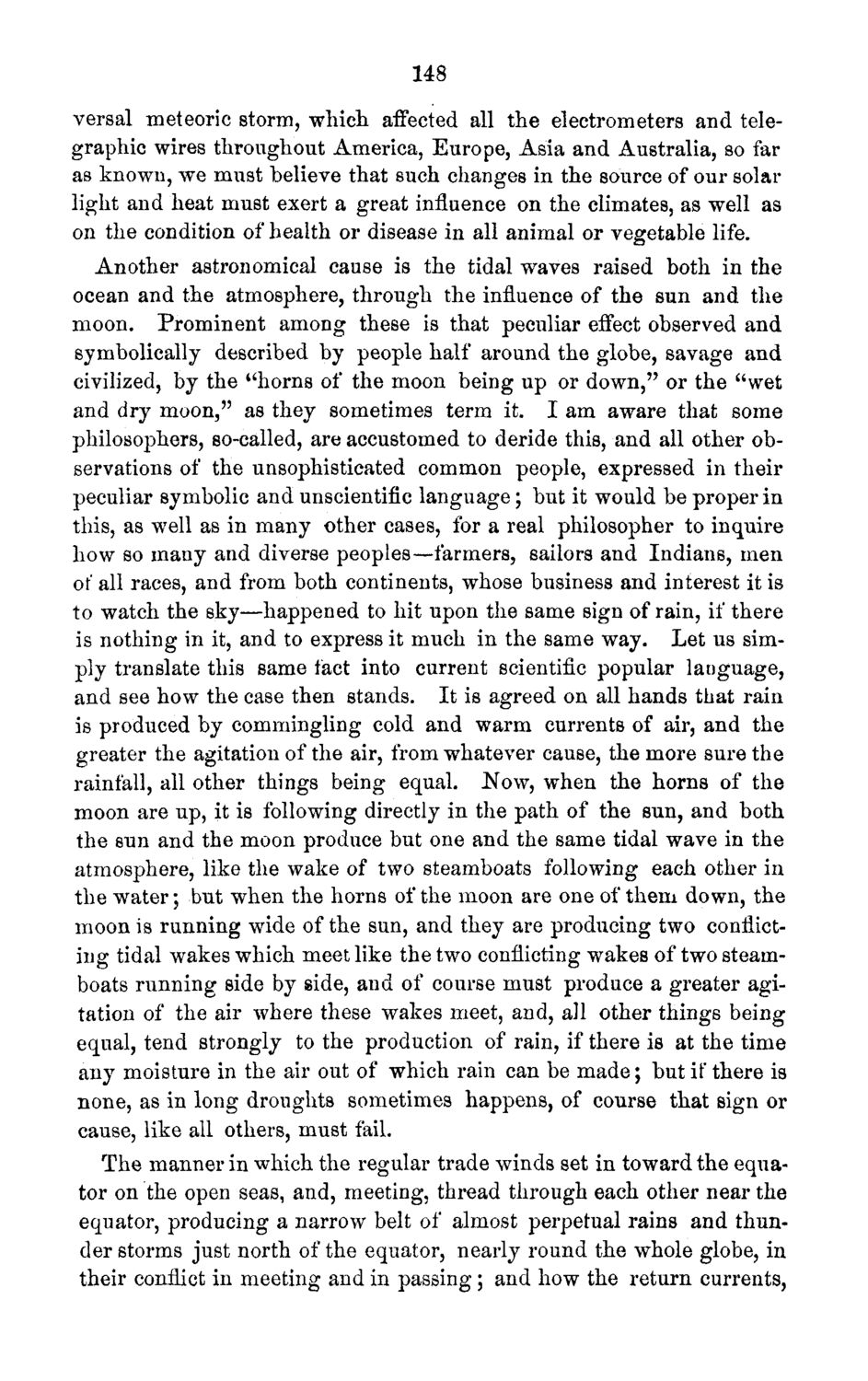| |
| |
Caption: Board of Trustees Minutes - 1871
This is a reduced-resolution page image for fast online browsing.

EXTRACTED TEXT FROM PAGE:
148 versal meteoric storm, which affected all the electrometers and telegraphic wires throughout America, Europe, Asia and Australia, so far as known, we must believe that such changes in the source of our solar light and heat must exert a great influence on the climates, as well as on the condition of health or disease in all animal or vegetable life. Another astronomical cause is the tidal waves raised both in the ocean and the atmosphere, through the influence of the sun and the moon. Prominent among these is that peculiar effect observed and symbolically described by people half around the globe, savage and civilized, by the "horns of the moon being up or down," or the "wet and dry moon," as they sometimes term it. I am aware that some philosophers, so-called, are accustomed to deride this, and all other observations of the unsophisticated common people, expressed in their peculiar symbolic and unscientific language; but it would be proper in this, as well as in many other cases, for a real philosopher to inquire how so many and diverse peoples—farmers, sailors and Indians, men of all races, and from both continents, whose business and interest it is to watch the sky—happened to hit upon the same sign of rain, if there is nothing in it, and to express it much in the same way. Let us simply translate this same fact into current scientific popular language, and see how the case then stands. It is agreed on all hands that rain is produced by commingling cold and warm currents of air, and the greater the agitation of the air, from whatever cause, the more sure the rainfall, all other things being equal. Now, when the horns of the moon are up, it is following directly in the path of the sun, and both the sun and the moon produce but one and the same tidal wave in the atmosphere, like the wake of two steamboats following each other in the water; but when the horns of the moon are one of them down, the moon is running wide of the sun, and they are producing two conflicting tidal wakes which meet like the two conflicting wakes of two steamboats running side by side, and of course must produce a greater agitation of the air where these wakes meet, and, all other things being equal, tend strongly to the production of rain, if there is at the time any moisture in the air out of which rain can be made; but if there is none, as in long droughts sometimes happens, of course that sign or cause, like all others, must fail. The manner in which the regular trade winds set in toward the equator on the open seas, and, meeting, thread through each other near the equator, producing a narrow belt of almost perpetual rains and thunder storms just north of the equator, nearly round the whole globe, in their conflict in meeting and in passing ; and how the return currents,
| |